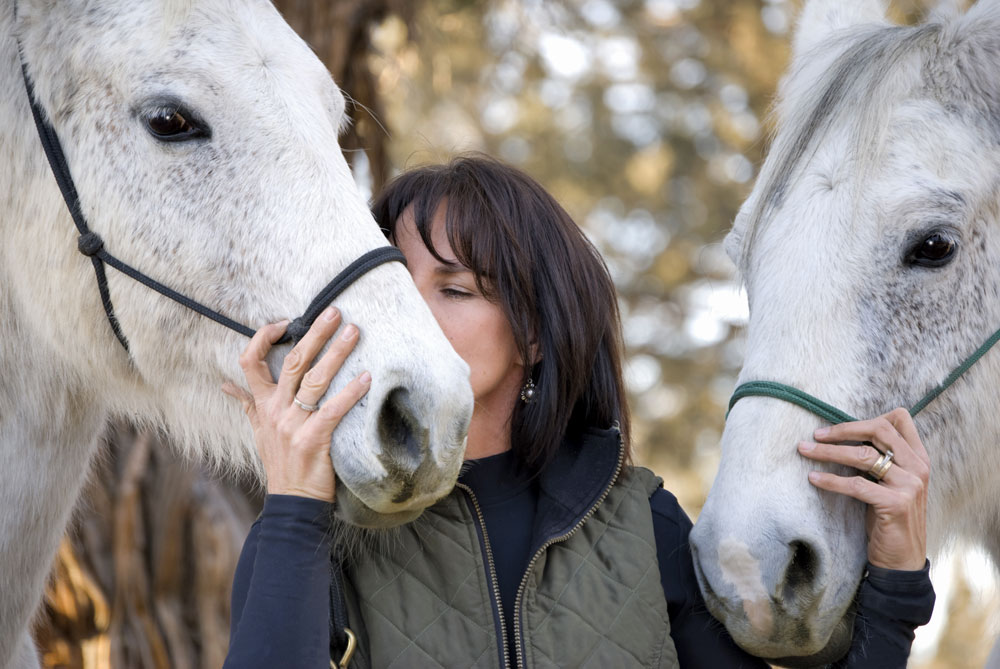Top 6 Mistakes to Avoid in Buying or Selling a Horse
It seems as if the horse marketplace is geared toward protecting yourself as a buyer. Buyers will try a particular horse multiple times, involve one or more trainers in the decision, and hire veterinarians to perform expensive, in-depth pre-purchase examinations. But what about the other side—as the seller? How in-depth should the seller get in “vetting” a particular buyer for their horse? Here are the top 6 mistakes to avoid in buying or selling a horse.


I feel that investigating a buyer is often overlooked. A seller trusts that the buyer does, in fact, have the experience and skills they state, and that the intended purpose they declared for the horse is genuine. However, what happens when the buyer isn’t being honest—intentionally or not? This can have a major impact on the future welfare of the horse in question, as well as your reputation as a seller.
1. Not taking at least two trial rides.
The top mistake to avoid when buying or selling a horse is not taking at least two trial rides. We all know that horses have good days and bad days. Buyers, you want to be sure you are OK with both before purchase. Sellers, you want to make sure the potential buyer can handle the naughty days.
2. Embellishing riding skills.
Buyers, if a horse is advertised as needing a professional program or requiring an intermediate rider, and you cannot actually provide these things, then don’t say that you can. Be honest with yourself and only express interest in horses advertised for your skill set, no matter how stunning the horse may be.
Sellers, if your horse has a tendency to spook, then disclose this information in the beginning. Be honest about your horse’s strengths and weaknesses to prevent disappointment and potential injury.
3. Not involving a trainer.
As a buyer, your trainer knows your riding abilities the best, and will be able to assess whether a particular horse is or is not appropriate for your skill set.
As a seller, this will help prevent a potential buyer from purchasing your horse and being disappointed if he is more than they can handle, or if he doesn’t have the talent their riding aspirations require.
4. Skipping the pre-purchase examination (PPE).
Yes, a horse is always sound the day before he’s lame, but a complete exam can uncover potential problems before they become an issue. For buyers, a pre-purchase exam can also help prepare you for managing any existing issues. You want to know what you are buying before the sale is final.
For sellers, a PPE provides all of the information to your buyer up front, preventing them from coming back later with accusations that you sold an unsound horse, or stating that they didn’t know about an existing issue.
5. Not investigating where the horse will be going.
Buyers, be honest about the husbandry situation you can provide, as well as if you have the time and finances to provide what that particular horse needs.
Sellers, get references from others in the horse industry that know the potential buyer. Make sure that they have the skills and the means to properly care for the horse. The welfare of the horse is always top priority, so make sure he will be happy in his new home.
6. Not using a purchase agreement.
The last mistake that can be avoided when buying or selling a horse is not using a purchase agreement. The particular terms can be flexible, as long as both parties are in agreement and understand what they mean. Should anything happen after the sale, both the buyer and seller will be thankful to have a signed agreement.
I have unfortunately had to see what happens when these mistakes are made. I can’t tell you how heartbreaking it is to have a horse returned to you, months later, in very poor condition. Buyers will make excuses, blaming you and blaming the horse, when in reality it was their own lack of experience that led to the issues.
Don’t let it be the horse that suffers due to lack of diligence on either side of the transaction.
This article originally appeared in the May 2019 issue of Horse Illustrated magazine. Click here to subscribe!
Recent Posts
Barn Banter – Episode 30
Welcome to Barn Banter, the official podcast of Horse Illustrated. In Barn Banter episode 30, hosts Susan Friedland and Horse Illustrated…
ASPCA Right Horse Adoptable Horse of the Week: Lucille
Welcome to Horse Illustrated’s weekly installment of the Right Horse Adoptable Horse of the Week, offered in partnership with the…
Bed Sores in Horses
As you brush your horse’s lower legs, you spy something curious. There’s a little patch of hair that’s ruffled, like…
A Recap of Road to the Horse 2025
Road to the Horse is an exciting, unique colt-starting event, dedicated to changing people’s ideas and creating a better world…
2025 Defender Kentucky Three-Day Event: An Impressive List of Entries
Lexington, Ky. — Six of the world’s top 12 eventing riders, including World #1 Tom McEwen (GBR) and World #2…
2025 Defender Kentucky Three-Day Event
Stay up to date on the action from the 2025 Defender Kentucky Three-Day Event. Find information about the event, including…